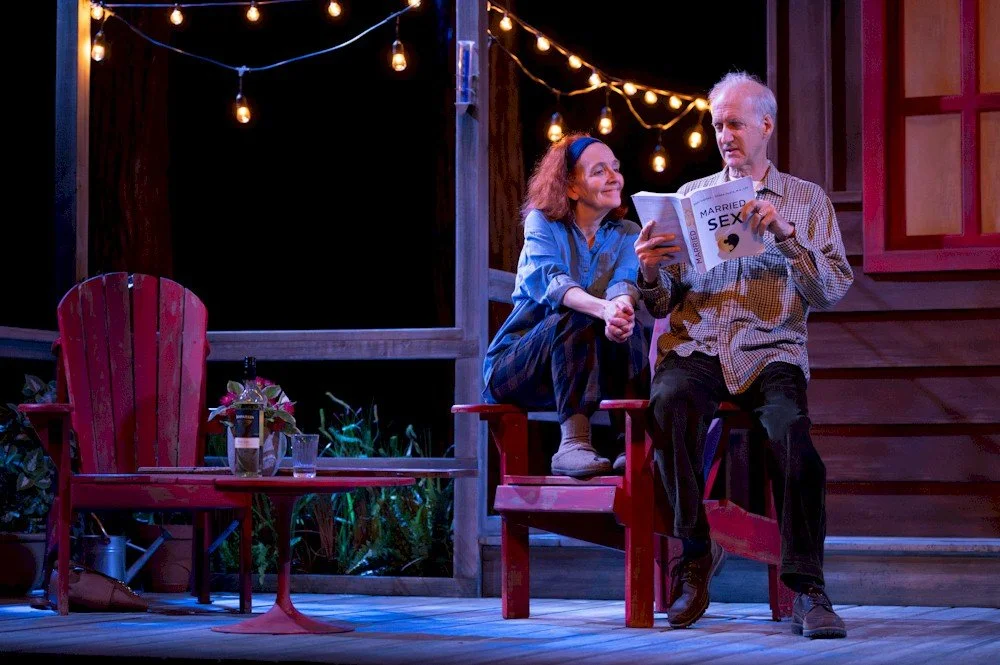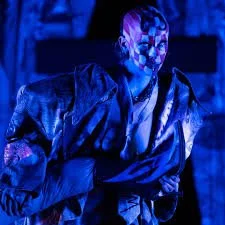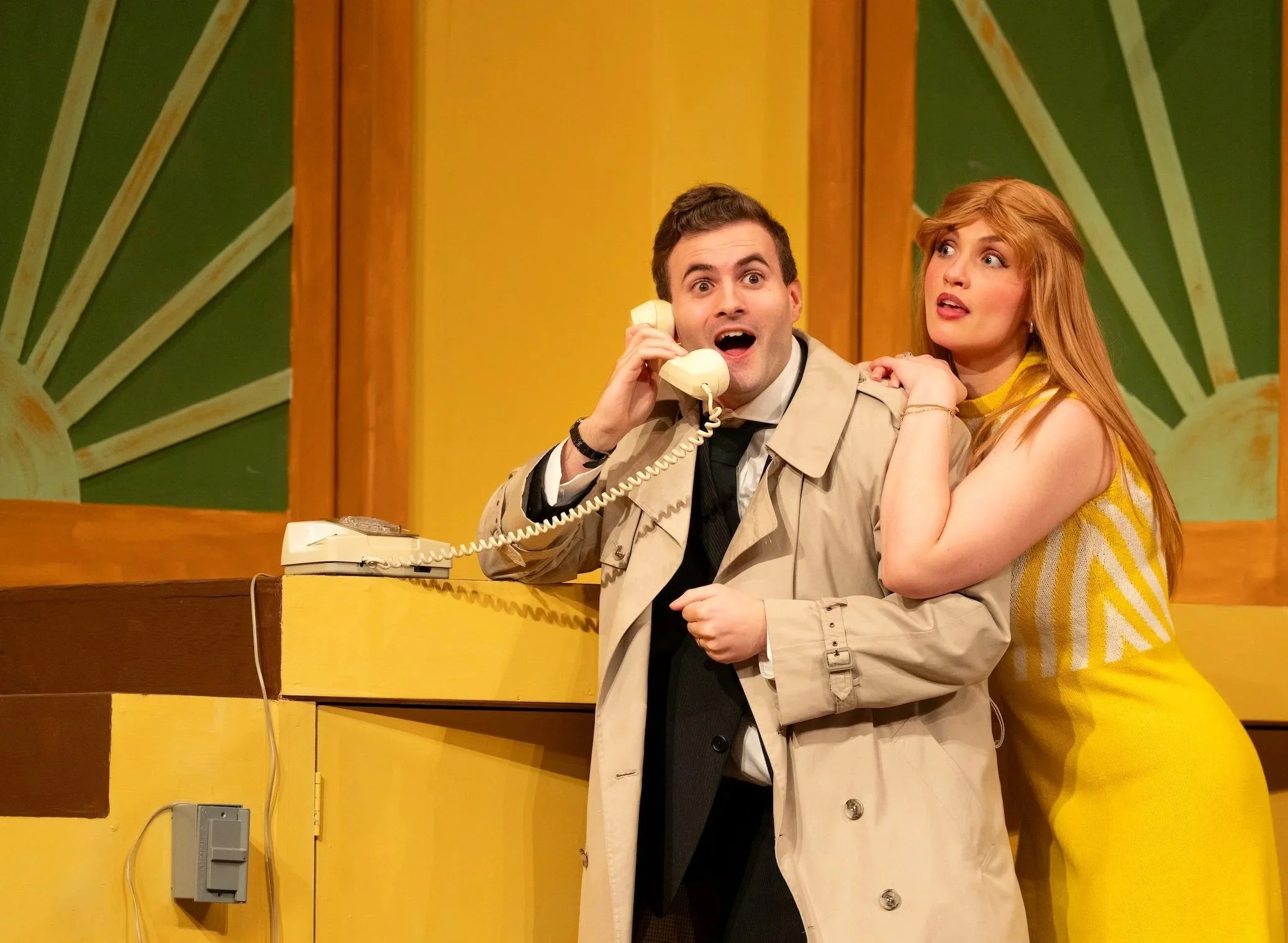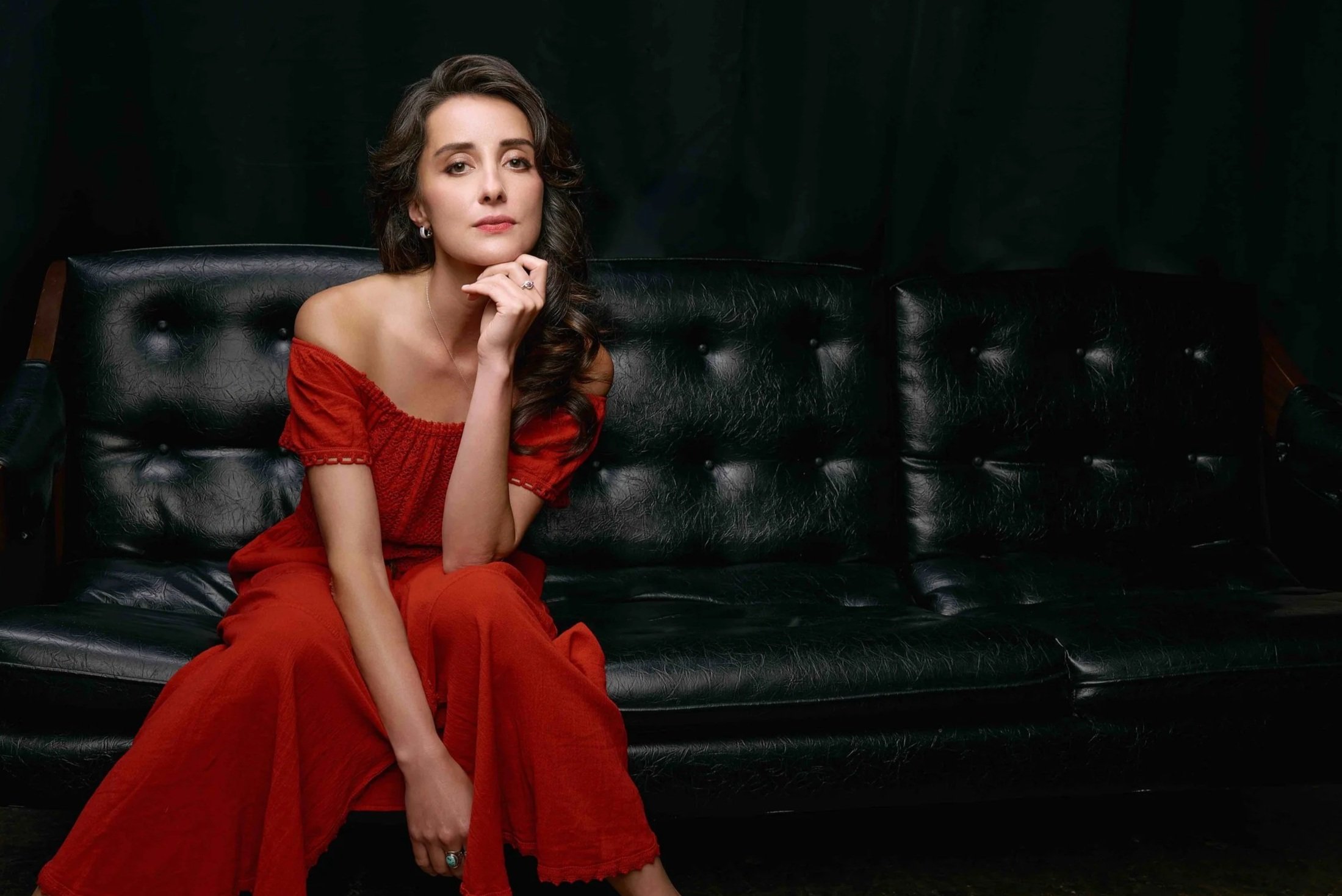Theatre review: Beautiful: The Carole King Musical works iconic songs into compelling story
Kaylee Harwood hands in a polished performance in the title role of a show filled with hits
Kaylee Harwood
Kaylee Harwood, Beatrice Zeilinger, and Jennifer Lynch in Beautiful: The Carole King Musical. Photo by Moonrider Productions
The Arts Club Theatre Company presents Beautiful: The Carole King Musical at the Stanley Industrial Alliance Stage to August 6
THERE’S A STORY behind every song. In Beautiful: The Carole King Musical, one of the characters comments on how hard it is to tell a story in a three-minute song. So why not tell it in a full-scale musical? The Arts Club’s latest offering at the Stanley Theatre, Beautiful tells the story of American singer-songwriter legend Carole King’s rise to fame and her relationship with collaborator Gerry Goffin. It’s an uplifting, entertaining show, neatly packaged with punch under the direction of Ashlie Corcoran, with choreography by Julie Tomaino, and musical direction by Ken Cormier.
The story begins onstage at Carnegie Hall in 1971, with King singing and playing piano. Acknowledging the significance of performing at the iconic venue, King reminisces about how she got here. We follow her back through memories, from her days as a precocious 16-year-old in Brooklyn, persuading her mom to let her go into Manhattan to try to sell her song to music publisher Donnie Kirshner. From there, we see her songwriting career unfold, including joining forces with lyricist Goffin, with whom romantic sparks also ignite. Along the way, we’re introduced to King and Goffin’s songwriting competitors Cynthia Weil and Barry Mann. But as King’s musical career thrives, we see challenges arise in her personal life.
Langley-born Kaylee Harwood headlines the show, and having already played the title role on the North American tour, her performance is terrifically polished. Harwood fully embodies King, from her mannerisms to her vocal inflections, while also making the part her own. Throughout, it feels like King is having a warm, personal conversation with you. And the way her physicality and characterization evolves convinces us that we’re seeing King mature through time—from a tenacious teenager pitching her work in the music production offices of 1650 Broadway to the emotionally resonant “(You Make Me Feel Like) A Natural Woman” that reflects a life lived. The highlight is, of course, her singing, with every number heartfelt, nuanced, and embellished with the pop stylizing of its time.
Daniel Curalli’s portrayal of the troubled Goffin is suitably sullen and unhinged, while still holding a tender connection with Harwood, and building an empathetic look into Goffin and King’s complicated relationship. The show’s book by Douglas McGrath does an excellent job incorporating King’s songs into the story, and Curalli and Harwood’s performance of “Some Kind of Wonderful” is poignant, as it also develops the narrative of their relationship.
Daniela Fernandez is feisty as the confident Weil, starting from her entertaining rendition of “Happy Days Are Here Again”; as her romantic counterpart, Barry Mann, Kamyar Pazandeh is charming and enduring. Together, the pair’s adept comedic touches lighten the mood throughout. Pazandeh’s role is particularly demanding, with his songs ranging from the delicate and heartfelt “Walking in the Rain”—which he sings affectingly to Fernandez—to the rock song “We Gotta Get Out of This Place” (albeit the one number that feels tonally out of place).
The ensemble does a stellar job of re-creating performances of iconic music artists from the 1950s and ’60s, with hits by the Shirelles, The Drifters, Neil Sedaka, and The Righteous Brothers. Thanks to costume designer Stephanie Kong’s period-perfect American fashion—including the glittery dresses and flowing gowns worn by girl groups like The Shirelles—and Tomaino’s appropriately stylized choreography, it feels like we’re stepping back in time. The fun standout is “The Locomotion” number, as performed on American Bandstand, led by the energetic Ali Watson as Little Eva.
With the use of multipurpose sliding panels and a revolving stage, Cory Sincennes’s effective set design seamlessly takes us from King’s childhood living room to the recording studios and concert and TV sound stages of the era. The details are inventive, including LED lights embedded in the panels that light up to turn a panel from a living room wall into a glitzy concert stage. In tandem with Michelle Ramsay’s often dazzling lighting design, it really feels like you’re transported to the pop and R&B concerts of the time.
Under Corcoran’s direction, the production is fluid and smooth, effortlessly transitioning from intimate personal scenes to big concert performances. The musical numbers and novelty of seeing famous singers and groups brought back to life are enjoyable, but Corcoran never loses focus on what’s the most important here: King’s inspiring story of perseverance and integrity.














